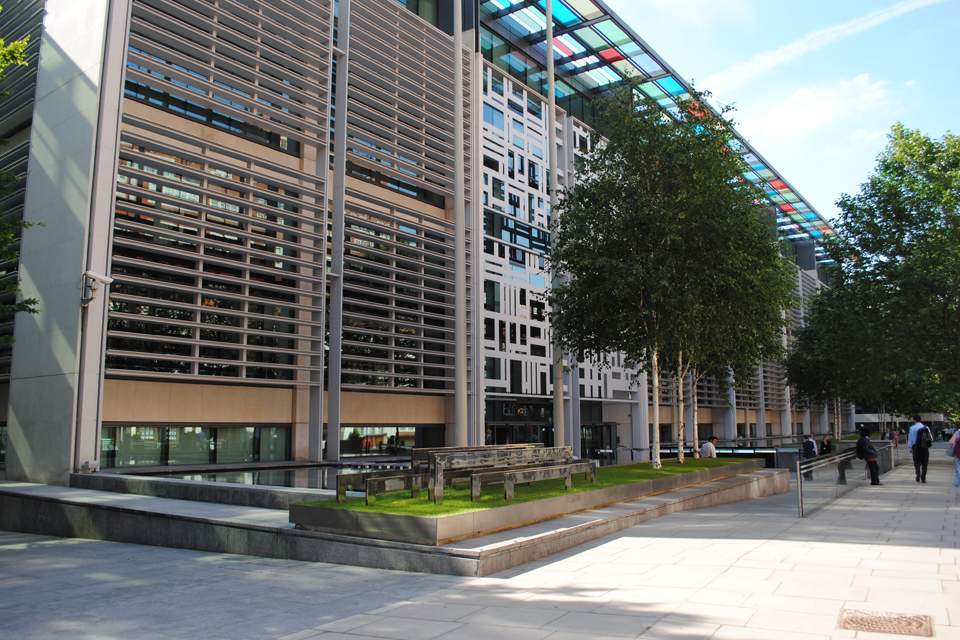The Home Secretary and Education Secretary have announced new proposals to ensure the UK’s world-leading higher education sector is used for education, not as a gateway to immigration, with options to go further remaining under consideration.
This will deliver on the commitment to lower overall levels of migration while maintaining the UK’s leading status as a world-class destination for higher education and attracting the brightest and best international students.
It comes as the latest statistics published by the ONS show net migration has dropped by 10% since 2022. These figures do not take into account changes made by the government which are expected to bring migration down further. The latest figures since the changes came into effect show a 25% drop in visa applications. The Office for Budget Responsibility has previously forecast that net migration will halve from its 2022 peak in the next 12 months.
The proposals would regulate the recruitment of international students, cracking down on rogue recruitment agents who encourage people to apply to British universities by mandating universities to sign up to a stringent framework for agents.
Tougher compliance standards for institutions recruiting students from overseas will be introduced. Those who accept international students who then fail to pass our visa checks, enrol or complete their courses, will risk losing their sponsor licence.
Financial maintenance requirements will be raised, so international students will have to prove their financial self-sufficiency. The government is already reviewing English language assessments with the objective of standardising independent assessments, ensuring all international students are equipped with the skills to understand their course materials – or they shouldn’t expect a place at a UK university.
Restrictions on remote delivery will also ensure all overseas students are predominantly undertaking face-to-face courses.
Home Secretary, James Cleverly, said:
We have taken decisive and necessary action to deliver the largest cut in legal migration in our country’s history. Applications are already falling sharply, down by almost a quarter on key routes in the first four months of this year compared to last, with the full impact of our package still to be seen.
But we must go further to make sure our immigration routes aren’t abused. That’s why we are cracking down on rogue international agents and, building on work across government, to ensure international students are coming here to study, not work.
Education Secretary, Gillian Keegan, said:
I am proud that British universities have a fantastic reputation both at home and abroad, and it is testament to the quality of education they offer that so many people aspire to study in this country.
It is right that we strike the balance between controlling immigration and making sure the UK remains the ‘go to’ place for students around the world, supporting our brilliant universities and enabling the best and brightest to study here.
The reforms form part of the government’s overall plan to cut legal migration, which would mean 300,000 who arrived last year would be unable to do so under the new rules.
These measures, which came into force in the first few months of this year, are already having an impact on migration levels, with the latest monthly statistics published yesterday showing that applications across key routes affected by the changes fell by 25% in the first four months of 2024, compared with the same period last year.
To protect the integrity and quality of the UK’s higher education sector and ensure it works in the country’s best interests, the Home Secretary commissioned the Migration Advisory Committee (MAC) to conduct a rapid review of the Graduate visa.
The MAC warned that rogue recruitment agents pose a threat to the integrity of our immigration system, with poor practices exploiting student and graduate visa holders mis-sold UK higher education. Since migrants on the student route transition directly to the Graduate route, immediate action is necessary.
The government also remains concerned that the route is not attracting the highest earners who contribute to our economy. after analysis from HMRC and the Home Office showed that more than a quarter of Graduate visa holders were not found to be in PAYE employment at any point during financial year ending 2023, and of those that were, the majority (63%) were not in PAYE employment for the full year.
The UK’s world-leading universities rightly attract some of the brightest students from around the world and the government remains committed to the International Education Strategy which recognises the important benefits that international students bring to the UK, including their economic contributions.
Taken together, the Home Secretary’s package to reduce legal migration will mean approximately 300,000 people who arrived in the UK last year would no longer be able to. The following measures are already in force:
-
increasing the salary threshold for Skilled Worker visas by 48% to £38,700
-
restricting care workers from bringing dependants with them and requiring care providers acting as sponsors in England to register with the industry regulator, the Care Quality Commission (CQC), to crack down on worker exploitation and abuse within the sector
-
abolishing the shortage occupation list and replacing it with a new immigration salary list, with employers no longer able to pay migrants less than UK workers in shortage occupations
-
raising the minimum income requirement for the family visa, to reach the level of the Skilled Worker visa, currently £38,700 by early 2025
Delivery of this comprehensive series of measures comes as the government cracks down on rising migration, both legally and illegally, and reforms the immigration system.
We have worked successfully with international partners and clamped down on criminal gangs with stepped-up enforcement.
The Safety of Rwanda Act was passed in April and the Treaty with Rwanda has been ratified.

